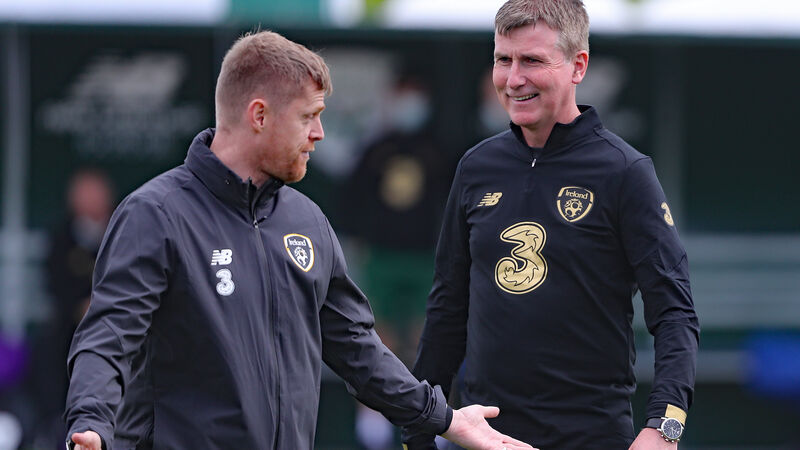Tommy Martin: The gods have mocked Irish football’s plans for change but we must keep the faith

Former Republic of Ireland assistant coach Damien Duff with manager Stephen Kenny.
We know what Oscar Wilde would say about Alan Kelly and Damien Duff leaving Stephen Kenny’s management set-up: To lose one member of your backroom team may be regarded as misfortune, to lose two in one week looks like carelessness!









